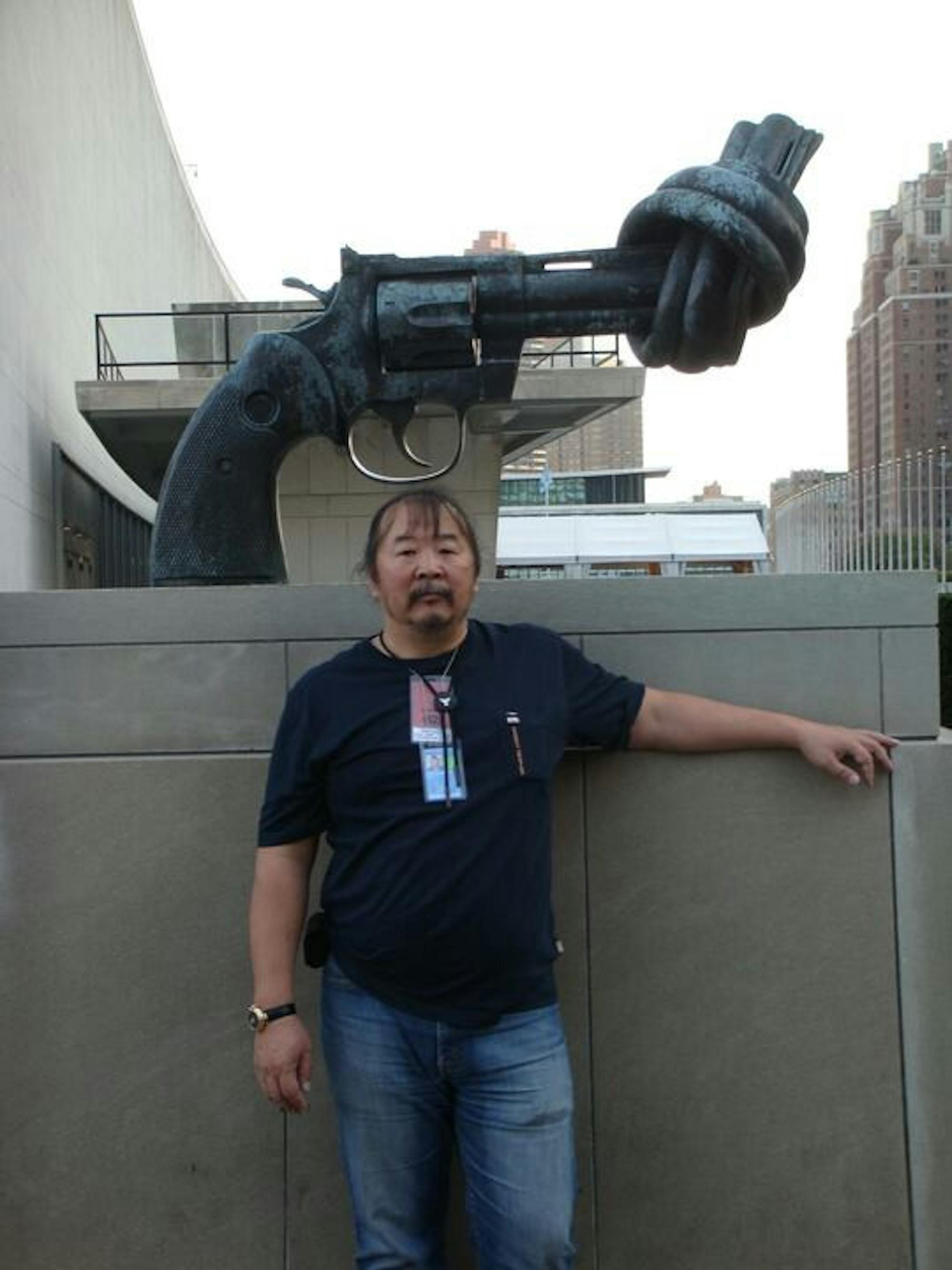On Feb. 5, Pavel Sulyandziga, a member of the Udege people of Russia’s Far East and a visiting scholar at Dartmouth, addressed East European, Eurasian, and Russian Studies professor Tatiana Filimonova’s class, RUSS 38.23, “Imagining Siberia.” He discussed his ongoing political and environmental activism following his exile from Russia.
Sulyandziga’s involvement with the East European, Eurasian and Russian studies department began through his connection with professor emeritus Barry Scherr, according to associate professor Ainsley Morse. Initially affiliated with the department during the 2017-18 academic year, Sulyandziga re-established ties with it in 2021, this time as a visiting scholar.
While in Russia, Sulyandziga said he was accused of espionage and collusion with Western forces. As recently as November 2023, a Russian regional court charged Sulyandziga with “discrediting the Russian military,” a tactic increasingly employed to suppress dissidents of Russia’s invasion of Ukraine. This charge follows a string of criminal cases opened against Sulyandziga since his departure from Russia in 2017.
In late January 2017, Sulyandziga filed his case for political asylum at the Boston Asylum Office, responsible for processing refugee claims in the states of Maine, Massachusetts, New Hampshire and Rhode Island. According to a report from the University of Maine Law School, the Boston Asylum Office has an “adversarial” stance towards asylum seekers and possesses an unusually low approval rate of 11% — the second lowest in the country.
Despite initiating his asylum application in 2017, Sulyandziga remains in a legal impasse amid ongoing, targeted harassment by the Russian government. He said that his asylum request status remains unchanged and that he has not been summoned for an interview with an asylum officer in the seven years since he first applied for asylum.
Sulyandziga currently resides in Yarmouth, Maine, with his wife and eight of his children. While in exile, Sulyandziga said he has not only been “branded an extremist, a separatist” to the Russian government, but an “enemy to his own people… a coward who ran away.”
“In Putin’s Russia, nationalism is growing, and it is increasingly brutal,” Sulyandziga said. “… Putin is saying that Russia is a God of the free people, that Russia has its own unique path in history. Anyone who speaks up are traitors … seeking to unravel Russia from within.”
According to Sulyandziga, the Russian government sought to tarnish his reputation among the Indigenous population in Siberia by spreading rumors suggesting that he was involved in money laundering and had been living a “lavish” lifestyle since departing from Russia. These accusations hold particular weight as Sulyandziga comes from Vladivostok, a region he said is characterized by its “economic depression.”
During his class visit, Sulyandziga also addressed the “misconception” that ending the Russo-Ukrainian war would allow the West to resume collaboration with Russia. He noted that even Indigenous representatives and activists from the West were often “misled” by the “picture of paradise” painted by organs of the Russian government, like the Russian Association for Indigenous Peoples.
“[Western representatives of Indigenous peoples] are treated like kings in Russia and believe that things can [return to] ‘normal’... but it is not Putin alone who is responsible for Ukraine,” Sulyandziga warned. “All the terrible, ideological phenomena [existed] long before the invasion of February 2022. Putin has just awakened them and allowed them to flourish, and this should be remembered in light of indigenous relations with Russia.”
Sulyandziga was unsurprised by the “disproportionately high numbers of Indigenous people” serving in the Russian military, believing that the phenomenon spoke to the “psychological toll” of long-standing oppression.
Beatrice Conti ’26, a student who had worked with Sulyandziga in “Imagining Siberia” last year, recalled learning that the high number of Indigenous volunteers serving in the military is caused by excessive nationalism, since Indigenous Siberian men often feel that serving is the only means of being seen as a “true Russian.”
Sulyandziga likened this sentiment among Indigenous Siberian men to a “generational inferiority complex,” noting his vulnerability to nationalism while growing up in colonized Siberia.
“My people were treated like livestock until they themselves believed it,” he said.
Even under the continued efforts of the Kremlin to silence him, Sulyandziga remains undeterred in his activism. He recently spearheaded an international campaign advocating for Tesla to cease purchasing from the Russian company Norilsk Nickel due to Russia’s actions in the Far East. He is in the process of arranging a roundtable discussion between representatives of Russia’s Indigenous peoples and members of the Russian opposition to discuss the legacy of Russia’s colonization of Siberia.
Leo Volchek ’26 voiced frustration over the “insufficient recognition” of the significance of Sulyandziga’s work, particularly given the substantial risks associated with his activism.
“When so much of what is coming out of Russia is twisted, having the perspective of an insider like Pavel [Sulyandziga] is essential for our understanding,” Volchek said. “… But even now, as Pavel [Sulyandziga] is trying to find asylum in the United States to spread his word and to divert international attention towards the people who need it, … it doesn’t feel as though his [work] is being fully acknowledged.”




